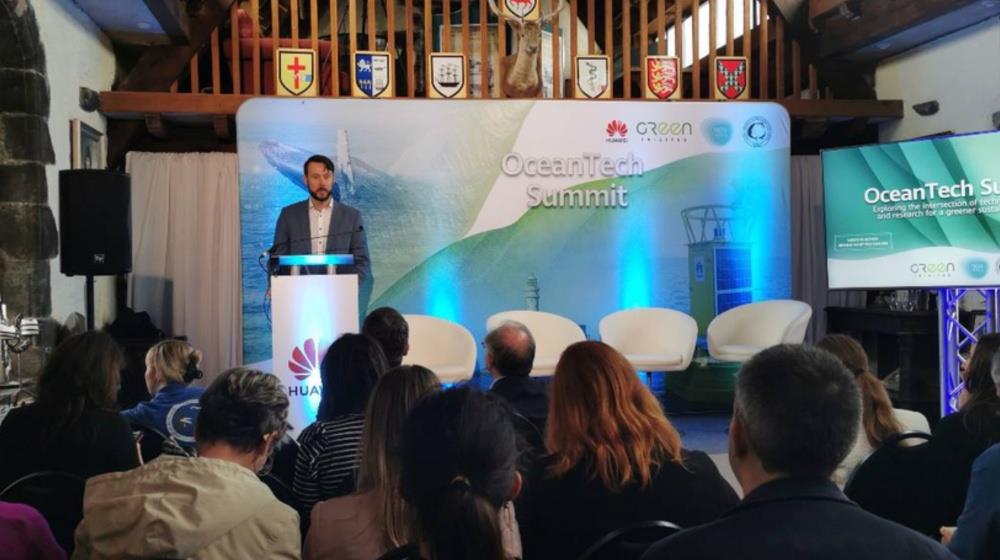People are usually mesmerised by the sounds of the ocean as they feel connected with Mother Nature. The Ocean Tech Summit held in Baltimore, Ireland, on 14 September 2023, brought us closer to new data regarding the fascinating creatures of the sea! The ocean sounds play a major role in shaping marine life, since by actually capturing them with the help of Huawei technology, we can protect and save many of the species that live underwater! Dolphins and whales not only communicate through sounds but they also use them for living, navigating, mating and finding food!
Humans use and therefore pollute the oceans with activities such as shipping and trade, resulting in the increase of noise pollution not only outside but also inside the waters, and hence altering the balance of underwater sound which, in turn, causes behavioural changes on marine animals. Kenneth Fredriksen, Vice President of Huawei, in his speech focused on climate change and at the same time on digital transformation and how we should use research to maintain balance in the ocean. That is why the Tech4All initiative promises to protect the marine environment and the wonderful sea creatures with the support of Huawei technology.
At the Ocean Tech Summit, the Ireland’s Ocean Research and Conservation Association (ORCA) and Huawei, through the Tech4All initiative, released the latest key findings discovered during their joint work on the Smart Whales Sound project, examining dolphins and whales’ various reactions to ocean noise in the South Coast of Ireland.
OCEANS
The project is structured along the following three axes: a) the weighting of sounds based on scientific data at frequencies that harm marine life; b) the measurement and collection of data with the use of special underwater microphones (hydrophones) and acoustic sensors for real-time sound detection and measurement; and c) the use of AI (Artificial Intelligence) in activities that generate ocean noise.
In addition, the research contributes to the increase of the country’s education level not only academically but also globally as it results in the cooperation between countries at the international level. Governments and ocean conservation organisations are called upon to address the threats posed by noise pollution with the support of research, creating jobs and increasing the educational attainment levels within the country. This was expressed by the lead researcher for the ORCA project, Emer Keaveney, who is a pioneer in her field thanks to the use of the PAM (Passive Acoustic Monitoring) tool in terms of measuring the sounds of Smart Whales. The whales, as she explained, reproduce complex symphonies of oceanic sounds leading to harmonious songs in the depths of the Irish sea… just like a fairy tale! The scientist detected 26,400 sounds of dolphins and whales during the research.
Furthermore, the National Geographic Young Explorer from the UK, Lucy Houliston, said that time is running out and that we must act now to save marine life. To this end, governments and non-profit organisations need to come together for the public good. In an interview, she stated that she herself uses technology to raise awareness about climate change and environmental issues. She uses social media networks to post her own video content where she presents empirically her topics. What makes her stand out is her expeditions to settlements in Canada and Ecuador to study their way of life. She uses case-by-case methods for each community separately.









